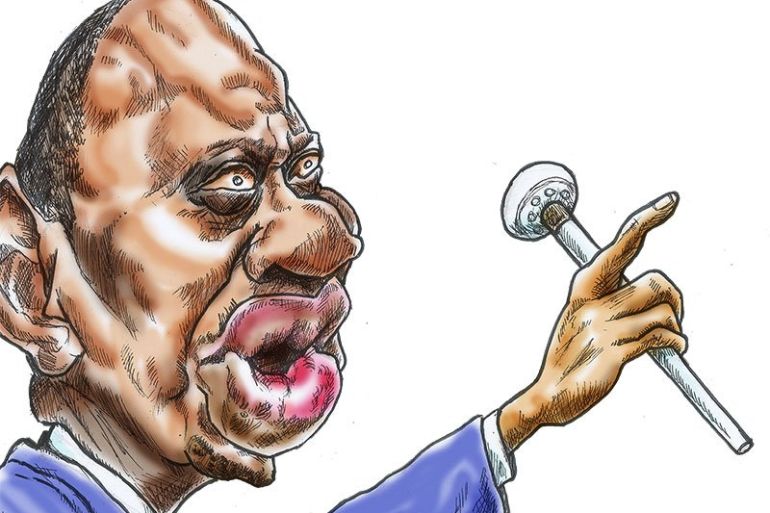President Kenyatta is now at the centre of Kenya’s election drama
Last week’s deputy presidential debate signalled that the upcoming election may soon turn into a referendum on Uhuru Kenyatta and his legacy.

This week’s two-tiered deputy presidential debate was a window into the soul of Kenyan politics. From the segregation between the poll numbers of the haves and the have-nots – with separate debates for candidates who have achieved less than 5 percent support in opinion polls and those who have exceeded it – to the focus on drama rather than policies, it was an eloquent depiction of the country’s fascination with hierarchies and politics as entertainment rather than a means to address serious problems.
The first session was a battle of the fringe, featuring Roots Party’s Justina Wamae and Agano Party’s Ruth Mucheru. It was largely dominated by a focus on the clownish prescriptions of the Roots Party, which range from hemp as a panacea for Kenya’s economic and food insecurity problems to the wildly exaggerated tales of the fabulous national wealth waiting to be unleashed via the export of hyena testicles and farming of snakes. If one was hoping the moderators, drawn from Kenya’s top media houses, would inject a sense of seriousness and pragmatism into the discussion, one was bound to be disappointed, if not necessarily surprised.
Keep reading
list of 4 items‘Absolute power’: After pro-China Maldives leader’s big win, what’s next?
Solomon Islands pro-China PM Manasseh Sogavare fails to secure majority
Pro-China party on course for landslide victory in Maldives election
However, the evening’s main bout, where most had expected Martha Karua of the Azimio coalition to easily dispose of Kenya Kwanza’s Rigathi Gachagua, did not exactly go to script. Gachagua, a former government mandarin dogged by allegations of corruption, seemed hopelessly outclassed by Karua, an icon of the 1990s pro-democracy movement, a lawyer and fierce debater, and a former presidential candidate herself. But he had an ace up his sleeve (or more accurately, a note in his inner pocket).
As Karua looked to float like a butterfly and sting like a bee, Gachagua was intent on dragging her into the mud. He made a point of soiling her otherwise-pristine reputation for integrity, repeating unproven allegations of bribery and land-grabbing while disingenuously claiming that he would never stoop to make a meal of them.
His biggest punches of the night, however, were not aimed at Karua, or even at her running mate, Raila Odinga, another prominent fixture in Kenya’s pro-democracy firmament. They were rather reserved for his own running mate Deputy President William Ruto’s estranged boss, President Uhuru Kenyatta and his family.
The president, who mended fences with Odinga, one of his bitterest rivals and critics in 2018, and is backing his bid to succeed him in what Ruto sees as a betrayal, presents a significant target. Not only is he a scion of the richest and most influential of Kenya’s kleptocratic political families, but the record of his 10 years in power consists largely of an unbroken procession of corruption scandals and graft-ridden projects. He is the Achilles heel in the Azimio campaign to distinguish Raila and Karua as paragons of integrity when compared with Kenya Kwanza’s dirty duo of Ruto and Gachagua, who have worked to paint their competitors as little more than Kenyatta “projects”.
Gachagua’s performance may signal that, with three weeks to the election, the gloves have finally come off. Their campaign has previously been content to obliquely lob accusations at Kenyatta’s regime while still professing to “respect” him – code in Kenya politics for not demanding an accounting and encouraging impunity. However, Gachagua came prepared to lay bare the Kenyatta family’s sins, in particular, its capture and repurposing of the state as a vehicle for accumulation. To demonstrate this, he dramatically pulled out a copy of a Kenya Gazette notice in which he declared “by a single signature, two companies owned by the first family were exempted from paying [nearly $3m]”.
Next week’s debate between Raila and Ruto will make clear whether the latter has now opted for a clean break with his boss and to make the election effectively a referendum on Kenyatta and his legacy. Perhaps in anticipation of this, Odinga is already moving to somewhat distance himself from his presumed patron, declaring that Kenyatta would have no role in an Odinga administration, a direct contradiction of statements Kenyatta has been making suggesting he would be consulted.
Whatever happens, the next three weeks are bound to serve up the sort of political entertainment Kenyans seem to crave as the national soap opera nears another season finale. It is a spectacle unlikely to be sullied by concerns over the policy prescriptions of the various campaigns.
The views expressed in this article are the author’s own and do not necessarily reflect Al Jazeera’s editorial stance.
